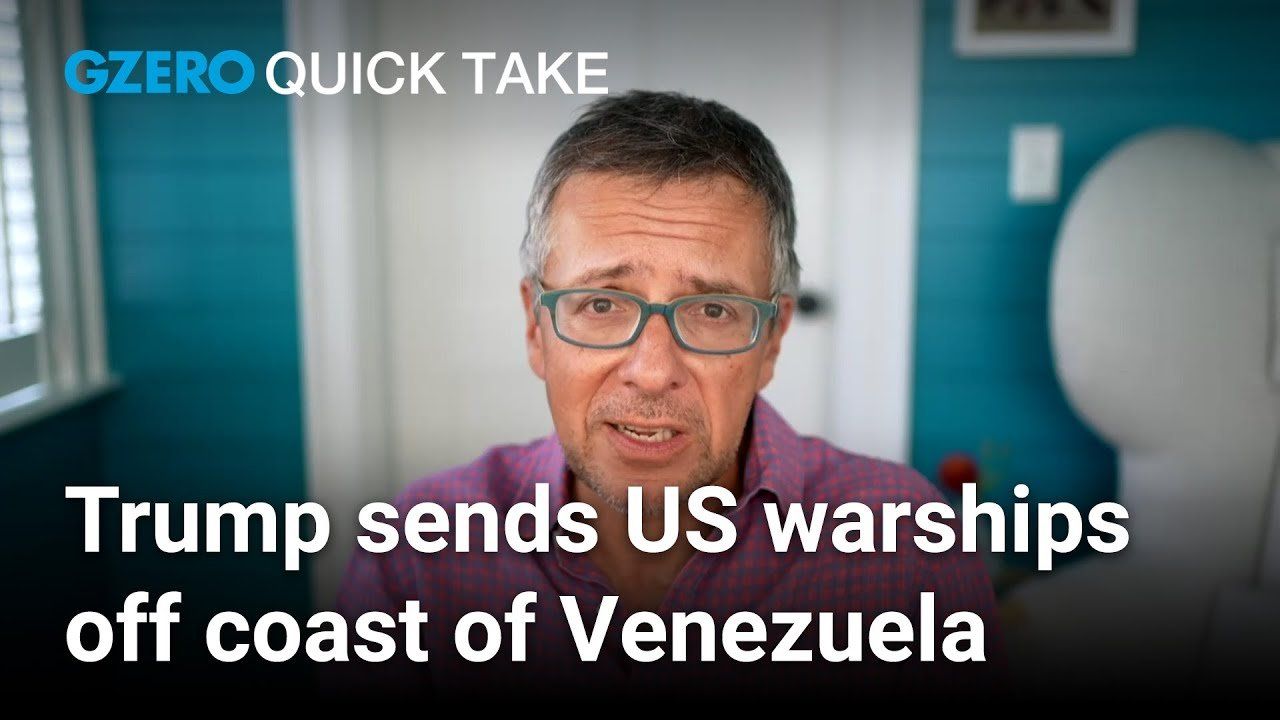August 27, 2025
In this episode of Ian Bremmer’s Quick Take, Ian breaks down escalating US actions toward Venezuela.
Ian explains why Venezuela isn’t making headlines, but should be. The Trump administration recently designated Venezuela’s powerful Tren de Aragua cartel a terrorist organization, directly tied Nicolás Maduro to another drug cartel, Cartel de los Soles, doubled the bounty on Maduro’s head to $50 million, and authorized the Pentagon to target cartels in Venezuela and Mexico.
Most strikingly, the US has deployed three guided missile destroyers and other ships to Venezuela’s coast, a clear show of force that suggests options beyond drug interdiction.
Military strikes are not inevitable, but Ian notes the dots are being connected. Any action would likely resemble past US strikes on Iran: a sudden, limited but heavy show of power, not a long war.
Still, labeling Maduro a narco-terrorist opens the door to broader moves against his regime, a possibility to watch closely in the coming weeks.
More For You
- YouTube
For many in Iran, it’s a waiting game for how long Ayatollah Khamenei has left to live.
Most Popular
An army soldier stands guard at a post at the Friendship Gate, following exchanges of fire between Pakistan and Afghanistan forces, at the border crossing between the two countries in Chaman, Pakistan February 27, 2026. Picture taken with a mobile phone.
REUTERS/Abdul Khaliq Achakzai
In a 30-minute call on Thursday, President Donald Trump reportedly told Ukrainian President Volodymyr Zelensky he wants to end the war with Russia as soon as possible — aiming for a deal by summer, but ideally within weeks.
Former British ambassador to the U.S. Peter Mandelson leaves his residence after he was released following his arrest by London police on Monday on suspicion of misconduct in public office, following the release of U.S. Justice Department files linked to the late financier and convicted sex offender Jeffrey Epstein, in London, Britain, February 26, 2026.
REUTERS/Toby Melville
The ghost of Jeffrey Epstein continues to haunt the world.
Think you know what's going on around the world? Here's your chance to prove it.
© 2025 GZERO Media. All Rights Reserved | A Eurasia Group media company.
